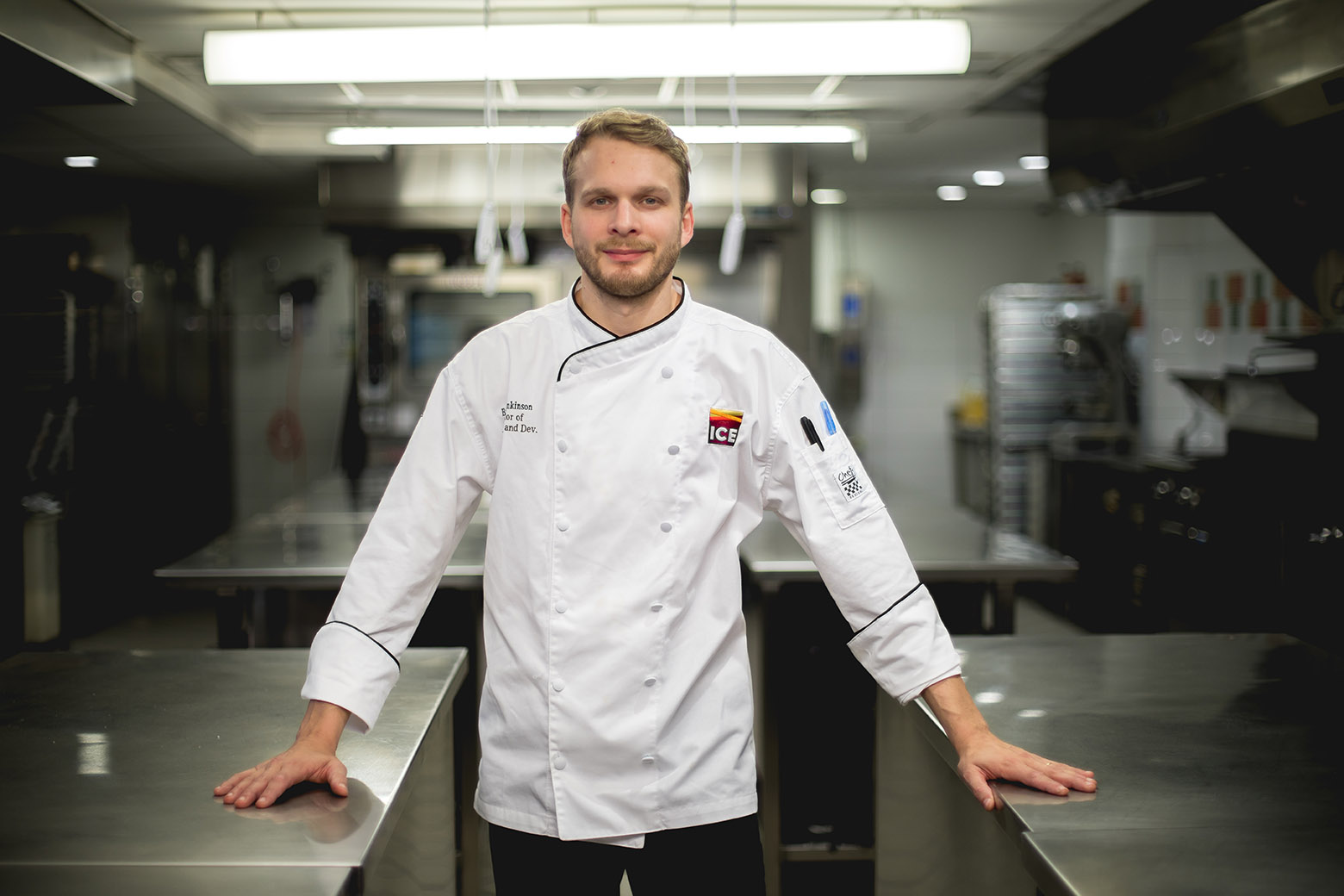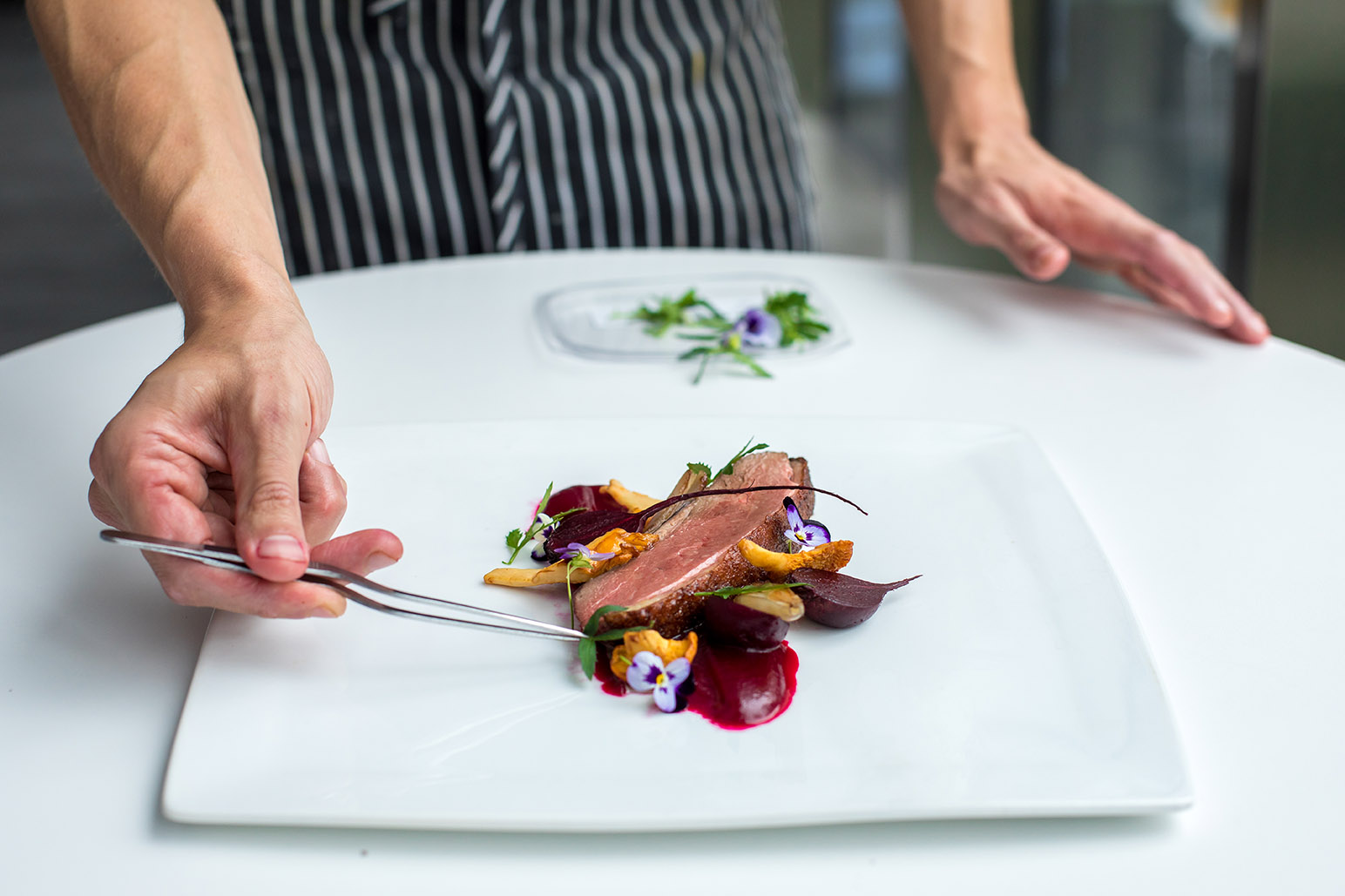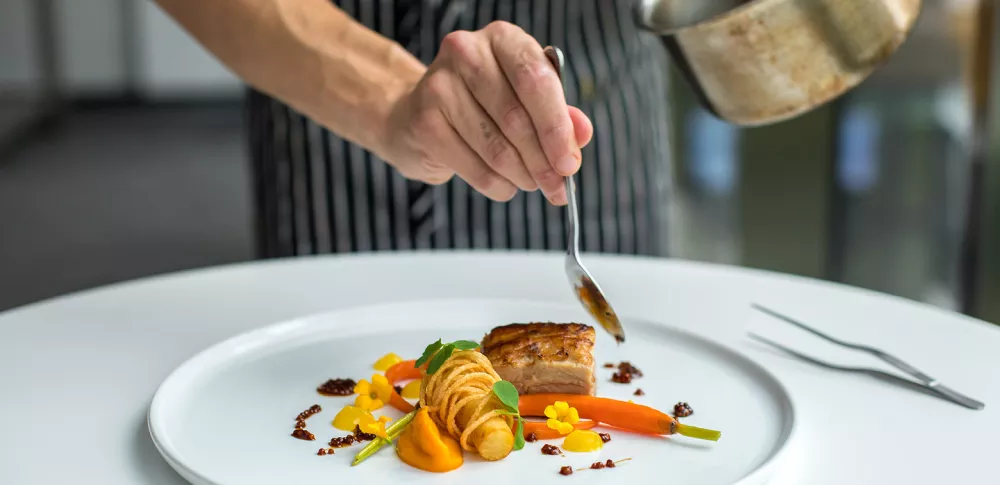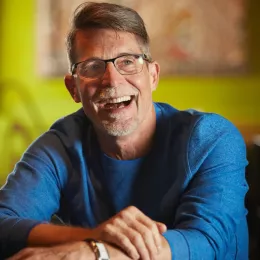Chef Barry Tonkinson began working in food at age 13 and developed his fine-dining experience under some of London’s most prominent chefs. He’s prepared private meals for the rich and famous, opened a Michelin-starred restaurant and managed his own catering company in Connecticut.
Let's start with where you’re from and how your interest in food developed.
I am originally from Bristol in England. From an early age my family traveled to France many times throughout the year as we had a property in rural Normandy. I became fascinated by the fantastic produce and quality of the food. A simple, freshly baked, flaky baguette with creamy butter was a mind-blowing experience in contrast to what I was used to.
I began working in kitchens at an early age. My first job was at 13 years old, chopping herbs at a local country hotel. My culinary journey developed naturally as I continued working in kitchens throughout my childhood.
You went to two colleges in the U.K., what did you study and what did you learn?
I studied English literature, media studies and sociology. I took a gap year before moving on to further my education, which was when my career path changed. I had been working in a local hotel. One day the owner of the hotel came to me. Unbeknownst to me, he was a former British cooking captain, winner of the world culinary championships and formerly held a Michelin star. He saw I had a keen interest in the culinary world and told me that if I really wanted to succeed, I needed to go to London and work under the best.
Then I was introduced to Paul Gayler MBE (Member of the British Empire, honoring distinguished service in one’s field) at The Lanesborough hotel in London, which was considered one of the best hotels in the world. I took a position there and began my culinary education at Westminster Kingsway College London.
What were your culinary experiences like following school?
My time spent at The Lanesborough will always be extremely valuable to me. I was introduced to amazing produce, strong fundamentals in technique and flavor, and most importantly for me, the mechanical organization and operation of a large kitchen. We had around 70 chefs and many kitchens. The way that the operation came together set the standard for me going forward. I also tried my best to enhance my knowledge and skill. I would often spend my day off at London’s Billingsgate Fish Market or at our butcher, learning as much as I could.

You’ve cooked for hotel room service, cookbook recipes, private dining and Michelin starred restaurants — did you set out to gain experience in so many areas of the field and which was your preference?
Chef Gayler became my mentor and still is to this day. He would get me involved in as much as possible and I would help him personally with as much as possible, whether it was recipe testing or private functions. I think it is important to have exposure to a wide range of culinary fields but I felt most at home in a fine-dining setting. The artistry of a fantastic menu and the feeling of a perfect service enthralled me.
What was it like to prepare meals for billionaires and celebrities at The Lanesborough?
It was interesting to recognize a lot of the guests that we were serving; however, the standard for every guest was equally exceptional, whether it was Michael Jackson or not.
And you have experience with vegetarian and vegan cuisine?
Chef Gayler essentially put vegetarian cooking on the map. He was the first chef to design a multi-course tasting menu specifically for vegetarians alongside a regular tasting menu. He is also the author of many fantastic vegetarian cookbooks. I became interested in vegetarian and vegan cuisine through working for Chef Gayler. I entered a national competition called the Vegetarian Chef of the Future by the Vegetarian Society and I came out a joint winner. I made a stuffed zucchini flower “fritti” with caponata and mint pesto, a Thai-inspired curry with lychee and squash, and for dessert, a rhubarb and vanilla panna cotta with red and black fruits jelly.
From The Lanesborough, you moved to The Bath Priory, which had one Michelin Star.
I had been in London for a while and wanted to experience a different kitchen environment and cuisine style. I worked for a chef named Chris Horridge who was interested in providing gourmet food with an emphasis on health. Many of the cooking techniques that we used would be thought out to enhance not only flavor but also nutrition. I learned some very interesting modern techniques and was introduced to a whole new philosophy.
And you returned to The Lanesborough to work with Heinz Beck from three Michelin-starred La Pergola.
I moved back to be part of the initial team setting up the hotel’s new restaurant, Apsleys. This was the epitome of fine dining and brought all of my culinary experience together. We achieved a Michelin star within five months of opening.
What has been your takeaway from each chef you worked with?
Each chef that I have ever worked with has contributed to my personal idea of what is great food. I have to say that I’ll always be fond of my time working with Chef Gayler, as it was the foundation upon which everything else developed. Other chefs I worked with added technique and certain flavor profiles, which I have taken on. Doing stints at other restaurants opens you up to completely different things that you would never think about.
You’ve now spent seven years catering in Connecticut where your wife is from. Was that a slower-paced lifestyle?
It was certainly a very different style — I went from gourmet fine dining to a more corporate style of cooking. It was a great opportunity to put all of my experience together.

How did the transition to teaching come about?
I wanted my next step to involve research and development and also to allow my skills and experience to be passed on to those going into the industry. If I can share my love for this industry with the students here at ICE, that would be the biggest reward to me.
Beyond instructing, you’re ICE’s new Director of Culinary Research. What are you hoping to research or develop?
I want to keep up with the ever-evolving food scene. I believe fundamentals are essential and that we need to keep moving forward and pushing culinary boundaries. I take inspiration from the many fantastic chefs out there, constantly pushing forward and I hope to emulate that here at ICE.
How important is research in culinary careers?
It’s essential. I feel it is quite often overlooked that the food scene we see before us is a product of huge amounts of research and development. Here at ICE, we are teaching students many lifetimes of culinary research and development in just a short time.
Modernist techniques and a modernist approach come up a lot with culinary research. What do those terms mean to you?
They mean refinement, being able to take each aspect of a dish and push it further. To take a dish and say, “how can we make this better, how can we achieve a more perfect mouthfeel, a crispier chip, a smoother purée, a more velvety sauce?”
What do you hope to impart to culinary students?
I hope I can firstly instill strong fundamentals. For me, organization and timing are key to being successful in the industry. Even with all the talent in the world and knowledge in the world, it can often be lost in a kitchen environment without the ability to work with precision under pressure.
I also hope that I can share my passion for food and for the industry as a whole. It has brought me an amazing level of joy and if I can share this with the students and keep them on track to fulfill their culinary dream, then I have done my job.
See Chef Barry's culinary research in a career program at ICE's New York campus.




